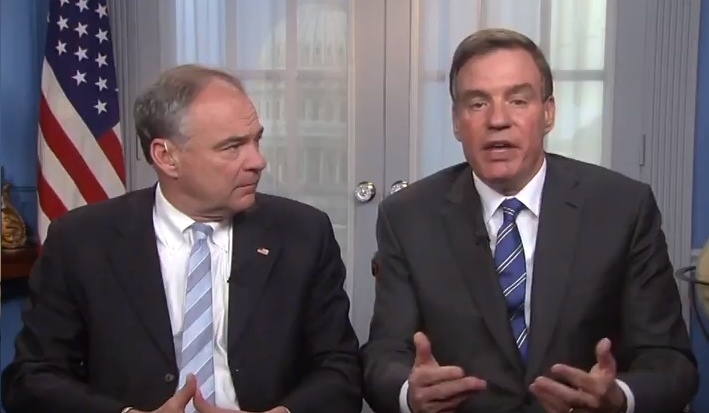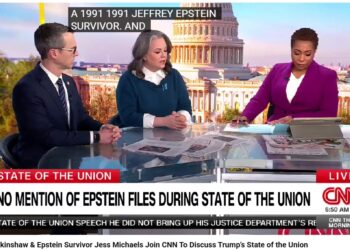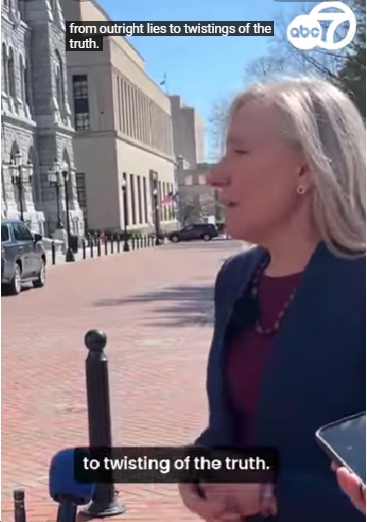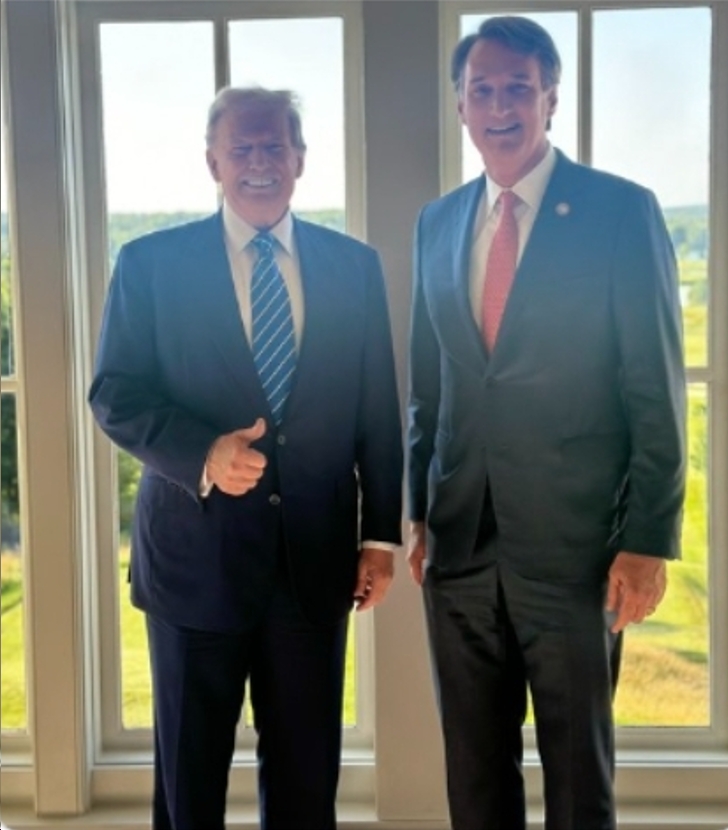Fascinating discussion this morning at UVA on presidents and emergency powers; see below for the full video – as well as selected video of Sen. Tim Kaine’s comments, specifically, as well as a few highlights.
In the following video, Sen. Kaine talks about the concept of a “permanent state of exception,” which seems like an oxymoron if there ever was one. According to Sen. Kaine, today “the definition of emergency is now being stretched far beyond what we would think of as an emergency…We’re now in a period where Brazil’s prosecution of its OWN PRESIDENT has been used by *our* president to be a national emergency – 50% tariffs on Brazilian products. Is another nation prosecuting its own president an emergency for the United States? Of course it’s not! We’re in an ‘energy emergency’ now declared by the president…we’re producing more energy than we’ve ever produced in the history of the United States…but we’re in an ’emergency’ the president is using to make an end run around regulations…The definition of emergency has gotten so plastic that it has enabled the president to do a number of things that allows him to end run around Congress.”
In this video, Sen. Kaine says President Trump is breaking with past precedent by using a declaration of emergency to impose tariffs, and has also used statutes against ALLIES (e.g., Canada), as opposed to against *adversaries*.
In this video, Sen. Kaine talks about privileged motions to challenge a president’s declaration of a state of emergency, but notes that the House won’t take any action…so Trump can say Congress could challenge his emergency declaration but isn’t doing so.
Here, Sen. Kaine says no one in Congress had even challenged a presidential IEEPA emergency until 2023…”because I think the uses of the emergency power were generally Congress said you’re right, this is a problem. And so they didn’t challenge…I think I have about 9 [challenges] cued up for floor action in October…I am forcing people…[to] vote on it.”
In this clip, Sen. Kaine argues that Trump is “very sensitive” to what the business community thinks vis-a-vis tariffs. Sen. Kaine also says Trump and Republicans care about voters – “the most likely way Trump will be rebuked by voters is economic chaos or challenges to their health care…[other things] are not going to move large chunks of voters; but economic chaos will and massive cuts to health care, and we’re seeing both play out now. And they’re likely to be a factor in the Virginia elections in 5 weeks that will be a bit of a bellwether to tell us what might happen next year.”
In this video clip, Sen. Kaine says:
“We view [the threat to fire federal employees if there’s a government shutdown] as a real threat, I don’t think that’s an idle threat. Now they may do it anyway; we could reach an agreement and then they say, well now that we’ve prepared the list of who to fire, let’s go ahead and fire them anyway; I think Russ Vought would agitate for that. But it’s a tough moment…We are very much thinking about in a shutdown mode, might some of these concerns that we have be exacerbated? And that’s one the factors we’re really grappling with.”
In this snippet, Sen. Kaine says:
“We we also care because it’s who we are. On July 5, 1776, the day after Philadelphia, the Virginia B team, the Virginia founders who were not in Philadelphia, met in Williamsburg and they elected Patrick Henry, governor. They wrote the Virginia Bill of Rights. They wrote the Virginia Constitution and they adopted the Virginia State Seal, which says sic separate tyrannis. They used the future verb tense – not down with tyrants, we don’t like tyrants – thus be it *always*, thus be it *ever* to tyrants. They viewed tyranny as a permanent fact of human nature. and they said we’re not a nation that embraces tyranny. Now 30% of Americans at that time were fine with monarchy. They wanted to stay with England either because they liked monarchy, they thought democracy was messy, they had friends or family or financial ties to England. So there was a debate about democracy or monarchy then. And I think that that debate is happening right now. But we resolved it when we threw off divine right of kings, when we declared for democracy, however messy. We resolved it. And as we come up on 250 years, we’re having that same debate right now. And…one last thing – George Washington, the Congress that wrote the Constitution in 1787, they loved George Washington. They revered George Washington. But they made war powers a question for Congress, not the president. The president that they loved, who had been the general that won the revolution, they wouldn’t give George Washington war powers because they felt so strongly against an overreaching executive.”
Here Sen. Kaine says:
“Be as critical about Congress as you want because nothing you say will be as bad as what I’ve said about Congress…The deferral of power where Congress has abdicated in war powers is horrible. And I’ve had a chance to work on that. But it’s not just war powers…it’s diplomacy, it’s trade, it’s recently the deal we cut on nominations is ceding a little bit of the advice and consent power. What’s going on in the approps committee right now is ceding of the appropriations power. Congress is doing it and has done it for a long time…I do think there may be a realization that’s been slow to dawn that we are way down a path and we better turn around now as we’re getting about ready to celebrate 250 years of democracy- or it will be a wake and a requium rather than a celebration.”
Sen. Kaine:
“…25 senators wrote the president a letter now two weeks ago yesterday, and we said please give us the evidence that these were indeed narcotraffickers. Please give us the legal rationale to attack them when there’s been no declaration of war. And then a really important third question. Why attack rather than interdict? If you know where they are to attack them, you can interdict them. If you interdict them, you get evidence. If you get evidence, you use that evidence to go after the kingpins. If you blow the boat up, yes, it it makes a statement, but you destroy all the evidence. And so, arguably, interdiction in many cases is a better strategy for fighting narcotraffickers than to blow the boat up. We wrote the president a letter. We’re the article one branch. We have responsibility for war issues. It’s two weeks; he hasn’t answered. And thus far, we are pretty sure he’s not going to answer even those basic questions. Give us the evidence. What’s the legal rationale? Why attack rather than interdict? Classic congressional oversight of a power that is squarely within our remit. And we’re not even getting answers.”
Sen. Kaine:
“I just will say, you don’t work your entire career in the Senate to get
to be chairman of the appropriations committee and then just say I’ll let the
House majority write a bill with no input or I’ll let the president write the bill with no input. And so I’m very worried that a Senate approps committee in the past. I mean, you would fight with the president of your own party if the president tried to undo your work. But allowing recisions and empoundments midstream. Wait a minute, we had a deal. It’s it’s been very troubling to me that the appropriations committee has allowed that and not taken enough pride in their own work to actually insist upon a deal is a deal. I’m very worried about that.”
Sen. Kaine:
“…there are things that we can do in Congress and should. But…I’m very very worried about a crisis being precipitated if the administration chooses not to follow a final order. So you can lose but then appeal. Everyone has a right to appeal. And so you worked your way through the process and thus far we’ve seen a lot of effort, studied effort to win as many cases as possible, but not the defiance of a final court order. I worry that that will come, but I don’t assume it will come.”
Sen. Kaine:
“…the congressional challenge mechanism allows us to challenge the stated emergency but not the actions that are being taken to to respond to that emergency. So the way the statute is set up, I would have to convince my colleagues there’s no emergency at the border. I don’t have the ability to say, ‘Wait a minute, there’s an emergency at the border, but I’d like to convince you that these following 15 things that the president is doing pursuant to the emergency declaration shouldn’t be done.’ Now, I could challenge those things, but it would not be subject to this privileged up-or-down vote in 15 days. It’d have to go through a judiciary committee where I know what the Senate Judiciary Committee would do. They would say, ‘We like what President Trump is doing.’ We’re in a minority position in that committee. So, the interesting thing about these emergencies is that the congressional challenge mechanism is there’s no energy emergency. Not you shouldn’t end these regulations. There’s no border emergency, not we don’t like the steps you’re taking. There’s no fentanyl emergency, not you shouldn’t be doing tariffs. And so it’s a funny statute where we do get a pass to a an immediate vote on simple majority, but it’s on, ‘is there an emergency?’, not ‘are these actions legit to take?'”
Sen. Kaine:
“If you have a tariff regime that I’ll grant you an exception to industry A but not industry B, or company A, not company B. There’s a corruption element to it. There’s also a first amendment element to it. If you have a policy that where there’s many many exceptions that takes a lot of people who have concerns and makes them shut up and not express the concerns. And I hear for businesses all over Virginia, the tariff thing is really bad, but you can’t tell my story because I don’t want my company being in a headline criticizing the president’s policies. And there’s a lot of fear around a tariff policy that, as Philip said, we went from patchwork to kind of uniform. We’re now back to patchwork is a diplomatic way to describe, you know, we’ll announce it, we’ll pause it, we’ll give you a deal and not you a deal. We cut a deal with the UK that makes vehicles coming into the United States, they get treated better than vehicles coming in from Canada that are chock full of US content right now. So this is a corruption and kind of a silencing dissent by threatening people if they dissent, you’re going to be the one that’s going to bear the burden of the tariff…”
And here’s the full video of the entire discussion.


















